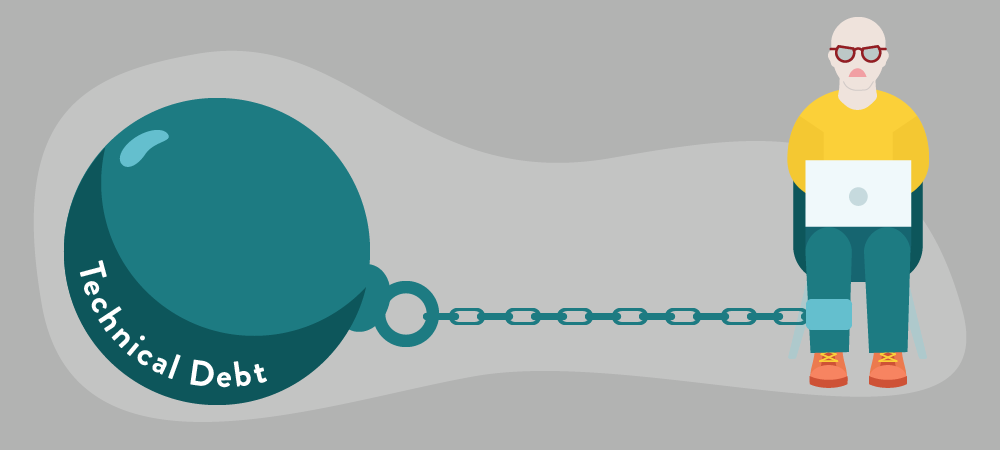



The question of whether buying links remains a viable SEO strategy for local businesses in 2025 is a complex one, sparking considerable debate. On one side, proponents argue that paid links can provide a quick boost in rankings. Conversely, many SEO experts maintain that organic link-building techniques are far more sustainable and align better with Google's algorithms. Google's stance on manipulative link strategies is clear: penalties await those who attempt to game the system. As Barry Montti has insightfully noted, the value of links has evolved; user trust and content quality now reign supreme. So, where does this leave local businesses striving for online visibility?
Backlinks, once considered the undisputed currency of the internet, continue to play a role in SEO, but their perceived value has undergone a seismic shift. Initially, quantity was king, with websites vying to accumulate as many inbound links as possible. Key algorithm changes, like the Penguin update in 2012, fundamentally altered this landscape by penalizing sites engaging in manipulative link schemes. Today, a handful of high-quality, relevant links are worth far more than a deluge of low-quality ones. Google's algorithm increasingly prioritises user engagement and content quality, meaning that a website with exceptional content and strong user signals can often outrank a competitor with a larger, but less reputable, backlink profile.
For local businesses, backlinks can still unlock increased online visibility and boost domain authority, but only if acquired strategically. Take, for instance, Paul’s Rubbish Removal, which achieved a 624% surge in organic traffic and a 375% jump in online inquiries through a meticulously tailored SEO strategy showcasing the power of organic SEO. Similarly, Trees Down Under demonstrated remarkable SEO improvements in 2022 with a $0 budget, securing top rankings for keywords like 'Tree Removal Sydney' and achieving significant local dominance proving strategic SEO is a wise investment. Local-focused links, in particular, can significantly enhance local SEO rankings and drive qualified organic traffic to your business. These links signal to Google that your business is a relevant and trustworthy entity within your local community.
The perception and effectiveness of buying links have evolved dramatically, particularly in light of Google's increasingly sophisticated algorithms. While the allure of a quick rankings boost may be tempting, manipulative link-buying tactics are fraught with risk. Penalties, ranging from ranking demotions to complete de-indexing, can devastate a business's online presence. Consider a hypothetical scenario: a local florist purchases hundreds of links from low-quality directories. Initially, they might see a temporary increase in rankings, but as soon as Google detects the artificial inflation, their site could be penalised, resulting in a long-term loss of visibility. Data indicates that organic strategies now often yield more sustainable, long-term benefits. This is not to say that paid advertising is ineffective, however, focusing on organic link building can be the best investment for smaller local businesses.
Recent Google algorithm updates have profoundly impacted link-building strategies, particularly by penalizing manipulative practices with increased severity. The emphasis is now squarely on content quality, user signals, and ethical SEO practices. Google's sophisticated algorithms are adept at identifying unnatural linking patterns, and any attempt to circumvent these systems can result in swift and severe penalties. For instance, in highly competitive industries like personal injury law, local citations (mentions of your business name, address, and phone number on relevant local directories and websites) are now often more influential than traditional backlinks illustrating the importance of local citations for SEO. This shift underscores the importance of building a genuine, authoritative online presence through valuable content and positive user experiences.
The best strategies for building links now revolve around sustainable and ethical practices that align with Google's guidelines. Natural link acquisition and strategic partnerships have emerged as primary ways to secure backlinks. Understanding and embracing these strategies is vital for adapting to the demands of modern SEO. This requires a fundamental shift in mindset, moving away from the pursuit of quick wins through paid links and towards a long-term investment in building a valuable online presence. In a digital world that is constantly adapting, so too must your SEO practices.
Natural link-building techniques and paid link strategies represent fundamentally different approaches to SEO, each with its own set of benefits and risks. Natural link building involves earning links through the creation of high-quality, valuable content that other websites want to share. Paid link strategies, on the other hand, involve directly purchasing links, often from link farms or low-quality websites. As Montti points out, artificially built links can significantly harm SEO rankings and trustworthiness due to potential penalties. In contrast, natural links are viewed by Google as a signal of authority and relevance, contributing to long-term organic growth.
In 2025, more effective alternatives to buying links centre on earning them through valuable content, strategic partnerships, and community engagement. Creating content that resonates with your target audience can lead to organic link acquisition from reputable sites. Strategic partnerships, local sponsorships, and events are all effective avenues for boosting link-building efforts. These tactics are sustainable and ethical, aligning with Google's guidelines and contributing to long-term SEO success. They also help to grow your audience through genuine, relevant means.
Producing high-quality, valuable content is a cornerstone of organic link acquisition. Content such as in-depth blog posts, comprehensive guides, visually appealing infographics, or informative videos can naturally attract backlinks from reputable websites. The key is to create content that is genuinely useful and relevant to your target audience. For example, a local bakery could create a blog post on "The Ultimate Guide to Gluten-Free Baking," providing valuable information and recipes that other food bloggers and websites might link to. Focus on content that is easy to understand and can assist your target audience in some way.
Forming strategic partnerships with other local businesses and influencers can be a mutually beneficial way to gain backlinks. Consider collaborating on joint ventures or co-branded content to create opportunities for link exchanges. For instance, a local gym could partner with a nearby health food store to create a co-branded workout and nutrition guide, with each business linking to the other's website. Mutually beneficial partnerships ensure backlinks from relevant, reputable sites, enhancing credibility and driving targeted traffic.
Sponsoring local events or charities can generate valuable backlinks from local organisations and media outlets. Participating in local trade shows or community events can also boost your business's online presence and credibility. For example, a local accounting firm could sponsor a community fun run, receiving a backlink from the event's website. Furthermore, event-based content creation, such as press releases or guest posts on local news sites, can naturally attract links and increase brand visibility.
Key link-building best practices in 2025 prioritise quality and relevance over quantity. Techniques such as reaching out to authoritative sites in your niche, creating value-rich content that solves problems, and avoiding black-hat practices are essential. Remember, ethical link building is not just about avoiding penalties; it's about building long-term trust, authority, and sustainable organic growth. Here is a list of actionable steps you can take today:
Gaining backlinks from authoritative and relevant sites is far more impactful than accumulating a high volume of low-quality links. Relevance is paramount; ensure that your backlinks come from websites within your industry or community. A local hardware store, for example, would benefit more from a backlink from a popular home improvement blog than from a generic online directory. Syntacticsinc.com highlights the importance of relevance and authority when building backlinks for your website. This helps to show how key this is when working on your own website.
Maintaining ethical link-building practices is crucial for avoiding Google penalties and fostering long-term SEO success. White-hat techniques, such as guest blogging on reputable sites, influencer outreach, and collaboration with industry leaders, are all effective ways to build a strong backlink profile without risking algorithmic penalties. Remember, Google's algorithms are constantly evolving, so it's essential to stay informed about the latest best practices and avoid any tactics that could be construed as manipulative.
Client Increase Source Dr Leak Plumbing 78% increase in lead quantity Uppercut Digital Incomplete 121% increase in users Uppercut Digital
Content quality and user behaviour are now primary drivers of SEO success. Google's algorithms heavily weigh user engagement metrics, such as time on site, bounce rate, and pages per session. High-quality content not only attracts backlinks but also keeps users engaged, signalling to Google that your website is a valuable resource. For example, if a user spends a significant amount of time reading a blog post on your website and then explores other pages, this sends a positive signal to Google, boosting your rankings.
The digital landscape for local businesses has shifted significantly, and link building is no exception. In 2025, the necessity of buying links is diminishing, as Google prioritizes quality content, user engagement, and ethical SEO practices. Local businesses should focus on creating valuable content that resonates with their target audience, fostering natural link acquisition through strategic partnerships, and actively engaging with their local community. By adapting their SEO strategies to this contemporary landscape, local businesses can achieve sustained online visibility and long-term growth.

We value your privacy
We use cookies to enhance your browsing experience, serve content, and analyse our traffic. By clicking "Accept All," you consent to our use of cookies. Cookie Policy

